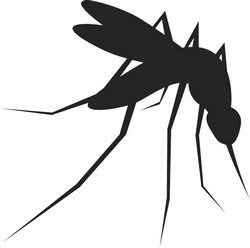CORDIS Express: Research results take on malaria
Malaria may have been eradicated from the EU during the 20th century but we are the lucky ones – the disease remains one of the world's deadliest, killing one person roughly every minute. There are more than 200 million new cases every year, most of them in children and pregnant women in developing countries. That’s why continued research into fully eradicating and effectively treating malaria is crucial. And since 2007, over 67 new projects on malaria worth more than EUR 142.3 million were supported through the FP7 programme. They cover all areas - from basic research, vaccines, diagnostics and drugs to research on the mosquito vector and its control as well as research capacity building and training researchers. As a result of these and other funding efforts, the parasite, the vector, the host/pathogen interactions and the disease are better known and new tools to fight the disease are being developed. In recent years, additional effort has been made to address implementation research to evaluate best use of existing and new malaria control interventions in local health systems, and in the development and best use of diagnostics. The FP7-funded NANOMAL project, for example, which finished at the end of June, has developed a pioneering smartphone-like device that uses cutting-edge nanotechnology to detect the malaria infection and any drug resistance from a pinprick of blood. The device will enable health workers to prescribe the right antimalarial drug first time, bringing innovative precision medicine to malaria patients, with a view to helping reduce the 600 000 malaria deaths that occur every year. This and the other EU-funded research projects are yielding significant results in the fight against malaria. This edition of CORDIS Express explores a handful of these results and related news. - Cutting edge video technology used to develop new anti-malaria concepts - Preventing pregnancy-associated malaria - New drugs targeting malaria - Fast and easy malaria diagnosis - Trending science: Nobel Prize honours breakthrough research for malaria and roundworms treatment
Countries
Austria, Belgium, Bulgaria, Cyprus, Czechia, Germany, Denmark, Estonia, Greece, Spain, Finland, France, Croatia, Hungary, Ireland, Italy, Lithuania, Luxembourg, Latvia, Malta, Netherlands, Poland, Portugal, Romania, Sweden, Slovenia, Slovakia, United Kingdom



